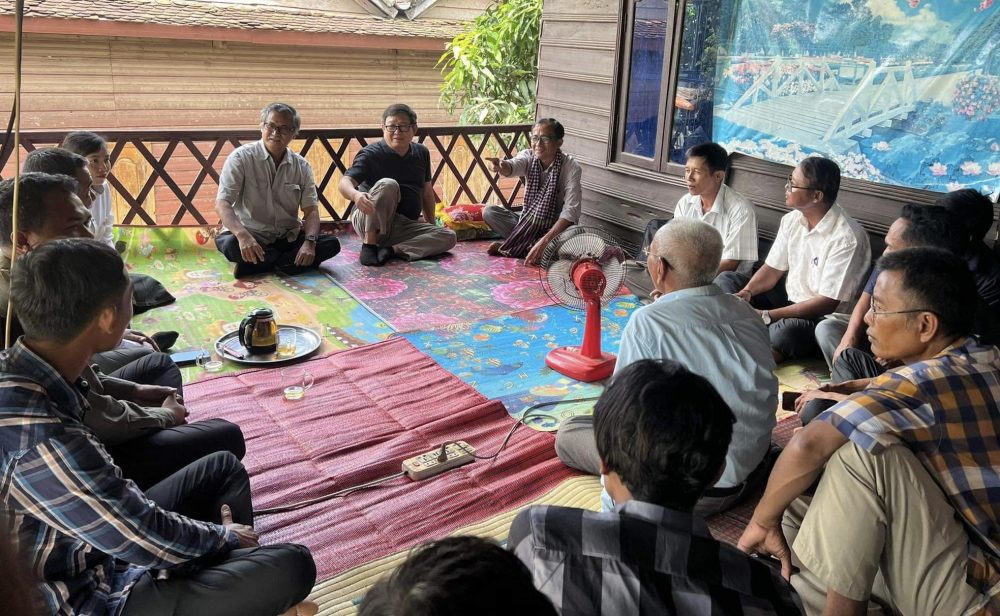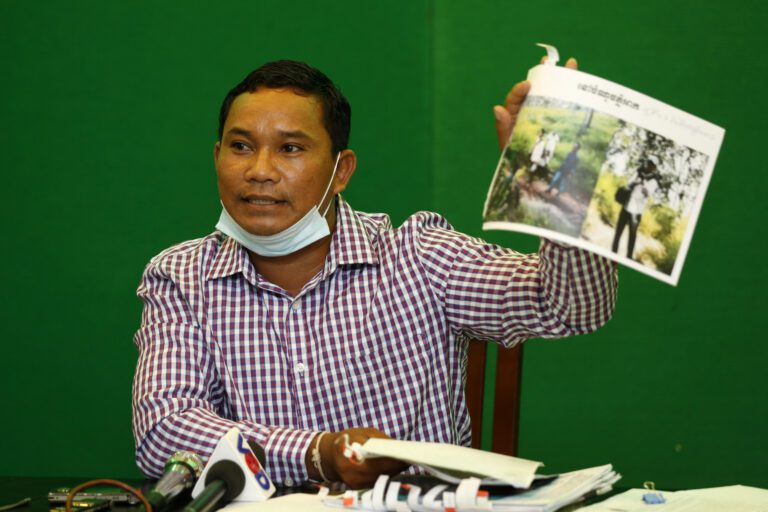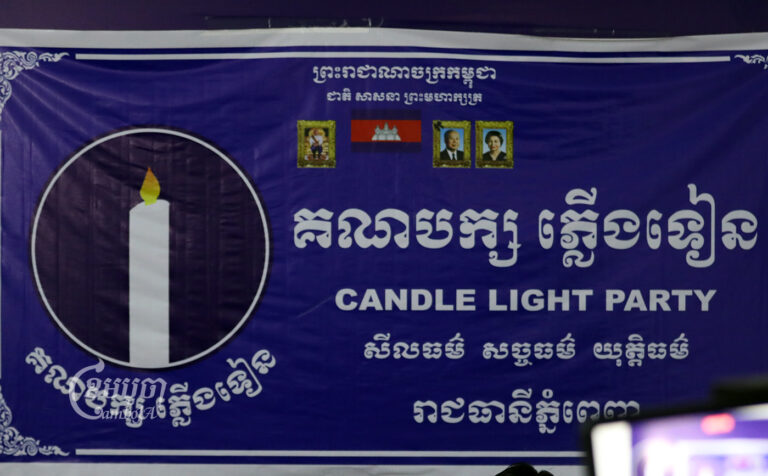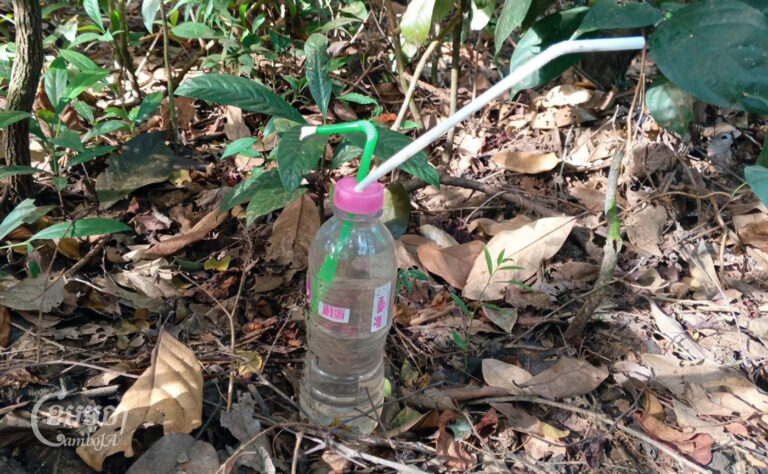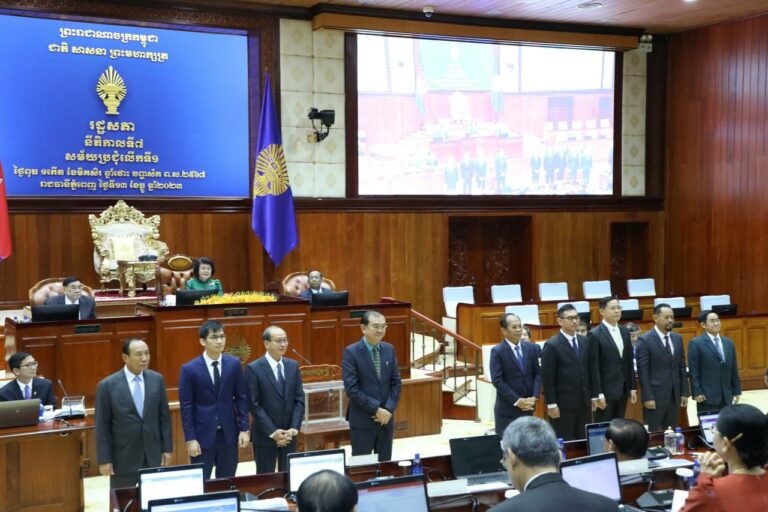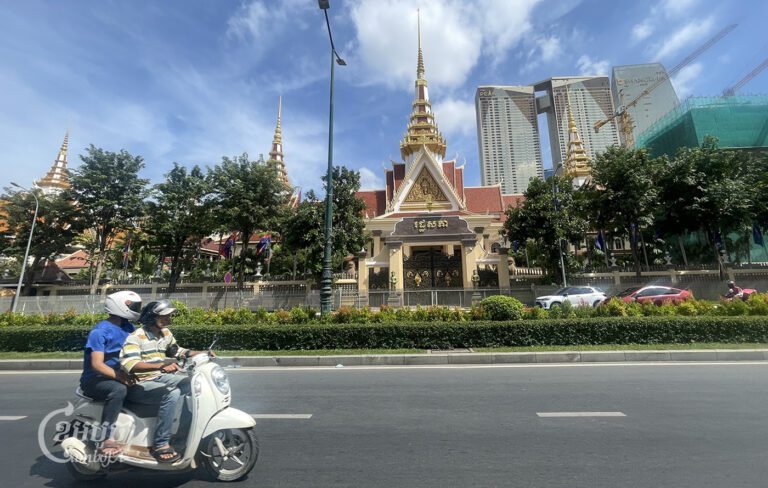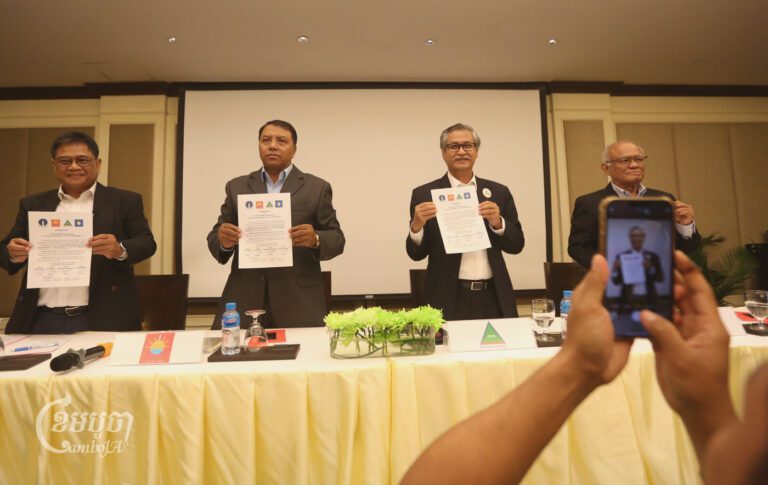An experiment in Cambodian democracy is taking shape in a rural commune in Kampong Thom province, where opposition parties have agreed to combine their votes to counter the influence of the local Cambodian People’s Party chief and his allies.
Elected officials of the Candlelight Party and Grassroots Democratic Party on Sunday joined hands in solidarity in Prasat Balaing district’s Sakream Commune, some 180km north of Phnom Penh. The local commune councilors said their constituents had complained for years of arbitrary decision-making, poor infrastructure development, and neglect.
Some opposition figures have bigger plans, envisioning a model for a nationwide system of checks-and-balances against the ruling CPP, which recently won 9,376 commune council seats, followed by the Candlelight Party with 2,198. The Grassroots Democratic Party won six seats.
In Sakream commune, the CPP won three of the seven seats — the majority needed to select a commune chief — and the Candlelight and Grassroots parties each won two, meaning they could appoint first and second deputy commune chiefs, and control the majority of council votes.
‘Common Interest’
“We have enough voices now by cooperating with the Candlelight Party: There will no longer be decisions of the commune council that serve individual interests,” said Sam Inn, secretary general of the Grassroots Democratic Party.
“A commune chief led by the Cambodian People’s Party cannot do whatever they want. If there is a decision that is detrimental to the people, both [opposition] parties will reject it,” he said.
The CPP commune chief, Chan Thol, rejected all claims of political influence and said all decisions were made by a majority ruling of the commune council.
“All problems are always put on the table for a group discussion. We aren’t permitted to make a decision alone,” Mr. Thol said.
He said he would invite commune councilors to discuss road construction projects, adding that the CPP always compromised with other parties on commune infrastructure developments.
“There is no obstacle: We join together to resolve problems for the common interest of citizens,” Mr. Thol said.
Restraint Mechanism
Even so, Mr. Inn said opposition unity at the local level will push CPP commune chiefs to consider the needs of all constituents, regardless of political affiliation.
“It is a model we want to build: multiple government parties at the local level,” he said. “Then, there will be a mechanism to restrain any party from making exclusive decisions.”
Ton Sy, first deputy commune chief from the Candlelight Party, said residents had complained to him about feeling ignored by local officials, notably on their calls for Sakream commune’s need for better public services.
“We aren’t cooperating [as political parties] to create any kind of movement. We have joined to improve our commune,” Mr. Sy said.
“Now, we have the Candlelight Party and the Grassroot Democratic Party. They will listen to our voices, and I believe that will improve the commune.”
Political Pluralism
Choeun Nasy, deputy commune chief for the Grassroots party, said the four-to-three majority on the commune council was a political game-changer for the area.
“When we cooperate with each other, it will bring advantages to our commune,” he said, adding “All voices will be heard before making decisions: We have to listen to each other. ”
Pa Chanroeun, president of the Cambodian Institute for Democracy, was optimistic. He welcomed the multiple-party dynamic in Sakream commune.
“It is a good example of political pluralism at the grassroot level, a move that keeps any party from having a monopoly on power for making decisions,” he said.
“I believe that this voice of checks-and-balances will make democracy work in Sakream commune, and all three parties will effectively enhance public service.”


